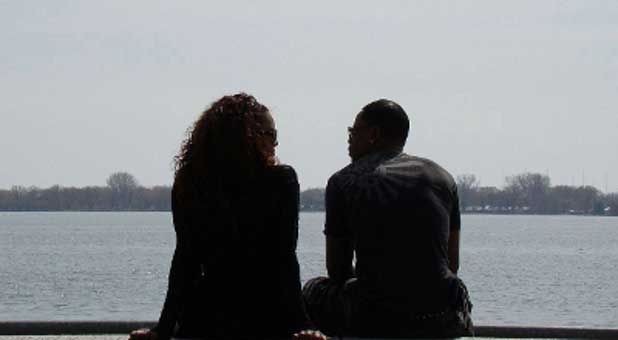Disagreement on public policy issues will not shatter the unity of the church.
Some American Christians come to faith out of such a disorderly lifestyle and worldview that they ardently desire Christian orthodoxy and philosophical consistency to guide their lives thereafter. So far, so good. Others are so nervous about the dominant secular culture in our nation that they virtually insist major Christian organizations–as represented by The 700 Club, Focus on the Family and other TV or radio programs–do their thinking for them on how to engage with this culture and make decisions on public-policy issues. This is not so good.
I hasten to say I am not criticizing these particular Christian groups, or any others by name. I am merely unhappy that American evangelical Christians, having made some good spiritual decisions in their lives, aren’t willing to do more thinking on their own.
I see no reasons why evangelicals should have to walk in lockstep on issues such as the defense budget, aid to Egypt, how to fight terrorism, whether or not sport utility vehicles are OK and so on, out of fear that disagreement on public-policy issues will shatter the unity of the Christian church. The fact is, it’s OK for Christians to disagree on important political and social issues. By doing so, they have not sinned against one another.
Very often, in fact, Christians should disagree with one another. William Wilberforce (1759-1833), the Englishman who spent his life campaigning against slavery, was at times the most hated man in England, even by other Christians. American evangelical churches in the 19th century split directly over the issue of slavery also. Each group ardently asserted its belief in the lordship of Jesus Christ, but looking back we would surely all agree now that one group was clearly wrong about slavery.
Outgoing Illinois Gov. George Ryan, a Republican, experienced hatred in January when he commuted the sentences of 156 state inmates on death row (153 received life without parole; three had their sentences reduced). Understandably, the families of victims of some heinous murders were outraged that those who killed their loved ones didn’t get killed by the state as retribution. They believed they had been denied justice.
Now, there are certainly moral arguments in favor of the death penalty–retribution being the most powerful–but there are also strong ones against it. In fact, for the first three centuries of Christianity, Christians strongly opposed the death penalty on principle, possibly because they themselves were so often its victims.
In my own experience around the world today in countries where Christians are persecuted, I have never met a believer who favors capital punishment. It is also true that evangelicals in Europe were in the forefront of ending capital punishment there many decades ago. So, let’s just say for now, Christians globally do disagree on the subject.
What there surely should be no disagreement on is the sheer inequity of the application of the death penalty across America.
If you are rich enough to afford a smart lawyer, it’s extremely unlikely you’ll get a death sentence or perhaps even get convicted, guilty or not. On the other hand, if you are poor, live in certain counties of certain states or belong to an ethnic minority (and especially if you have killed a white person), you are far more likely to end up on death row for a capital offense than if you were tried just 50 miles from that courtroom.
Is this just? Is this fair? I don’t see how any Christian can honestly answer yes to those questions. Nor do I accept that a few mistakes–fatal mistakes–here and there are the price you have to pay for a justice system that requires restitution as a means of cleansing society of great evil.
I do not deny that there are some crimes of murder so evil that they seem to cry out for restitution by execution of the criminal. But Christians ought to weigh this need against the need for the application of equal justice under the law and the absolute certainty that no more innocent men and women are done away with by the state.
Let the debate continue. It’s OK to disagree with a brother or sister. After all, even Christians sometimes change their minds on things.
David Aikman is a former Time magazine senior correspondent who has reported from Jerusalem, Beijing, Moscow and dozens of nations. He welcomes your comments at [email protected].











































